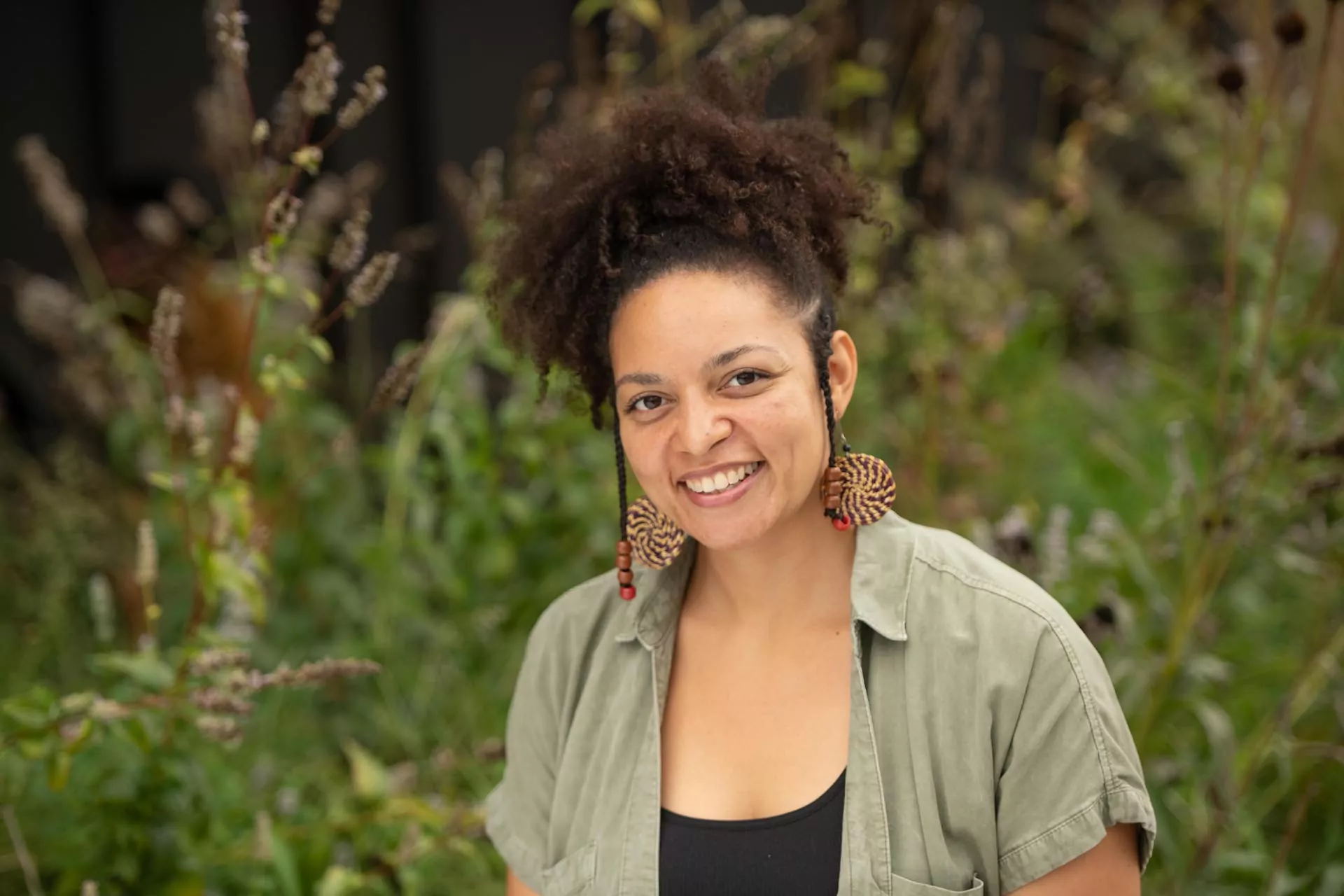Jessica Valoris is a multidisciplinary artist and community facilitator. Through ritual performance, sound collage, and mixed media painting, Jessica creates sacred spaces that honor the earth-based traditions of her Black and Jewish ancestors. Her art is rooted in practices of collective care, ancestral reverence and embodied study.
2023 Culture & Narrative Fellows Our Fellows
Jessica Valoris
(she/her)

About
Jessica Valoris is a multidisciplinary artist and community facilitator. Through ritual performance, sound collage, and mixed media painting, Jessica creates sacred spaces that honor the earth-based traditions of her Black and Jewish ancestors. Her art is rooted in practices of collective care, ancestral reverence and embodied study. Focusing on histories of Black fugitivity and marronage, Jessica hopes to elevate conversations about reparations, abolition, and earth stewardship. Her art is both balm and blueprint: mapping out pathways for the Black liberatory imagination and reviving recipes for collective care. Jessica is an alumna of the Intercultural Leadership Institute and Halcyon Arts Lab. Iterations of her work, Black Fugitive Folklore, have been shown at the VisArts, Tephra ICA, The Phillips Collection, The Kreeger Museum, Africana Film Festival, and Brentwood Arts Exchange.
Mediums: Film, Dance, Mixed Media/Installation, Visual Art, Sound Art
Location: Washington D.C.
Contact
Jessica on Her Project
Through immersive study, community activations, and sacred creative practice, “Black Fugitive Folklore” honors histories of marronage and Black fugitivity. Marronage is the practice of enslaved peoples’ escape and sovereign community-building in the wilderness, while Black fugitivity refers to the ways that Black people imagine a world beyond the oppressions of racialized violence. Enslaved people practiced fugitivity by innovating ways to subvert the plantation system through truancy, secret gatherings, harboring fugitives, and creating networks of solidarity and care. Today, these practices carry-on through various Black cultural expressions, oral traditions, and radical political organizing.
“Black Fugitive Folklore” provides an important intervention: disrupting patterns of erasure and racial amnesia that are commonplace throughout the United States. By centering stories of Black resistance, community building, and solidarity we can create new ways of defining what freedom and liberation mean. Dominant narratives often downplay the pervasiveness of resistance among the enslaved. Similarly, these white supremacist narratives also downplay the critical role that Black people have played in their own liberation. We have so much to learn from our self-liberating ancestors, as we navigate a society that has yet to reckon with the ongoing impact of its history.
Themes of return, land reclamation, re-wilding, family re-configuration, and more, have come up through a synthesis of various cultural practices and folklore. This work invites participants to reckon with these histories and reconsider how they shape current movements for abolition, reparations, and earth stewardship.
My objective is to create restorative spaces for Black organizers, activists, and cultural workers who are working at the intersections of abolition, reparations, mutual aid, food justice, and environmental stewardship. “Black Fugitive Folklore” aims to create space for them to be nourished, resourced, and affirmed by engaging in collaborative play, sacred ritual and collective study.


